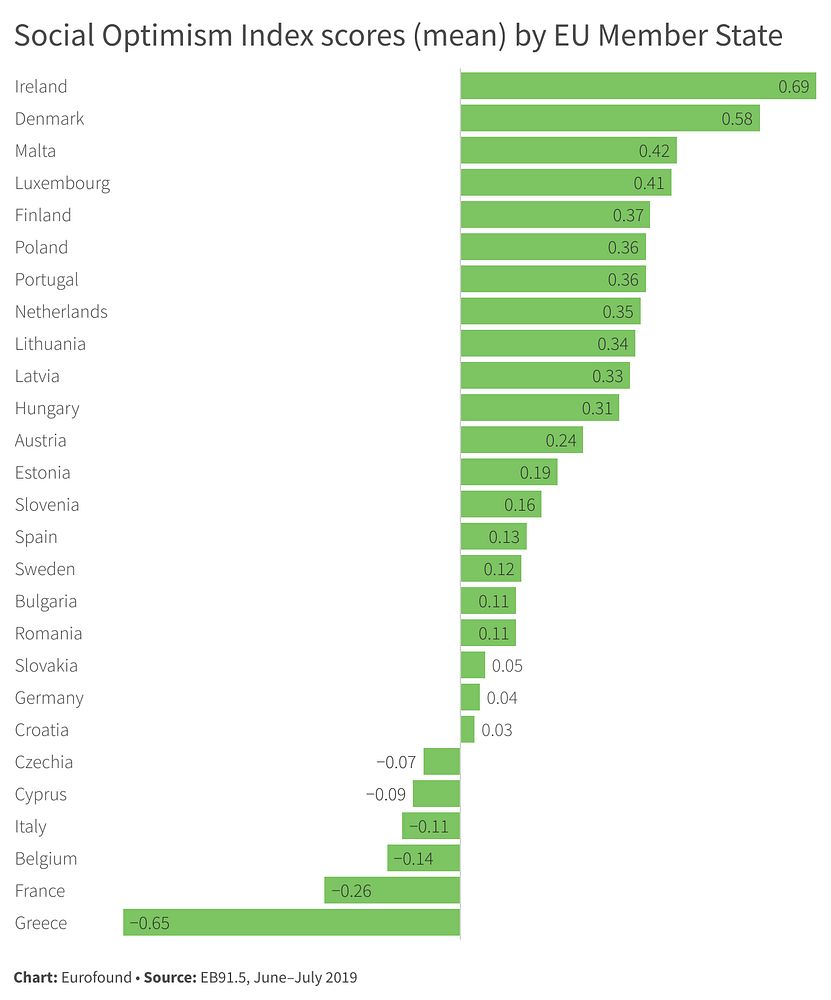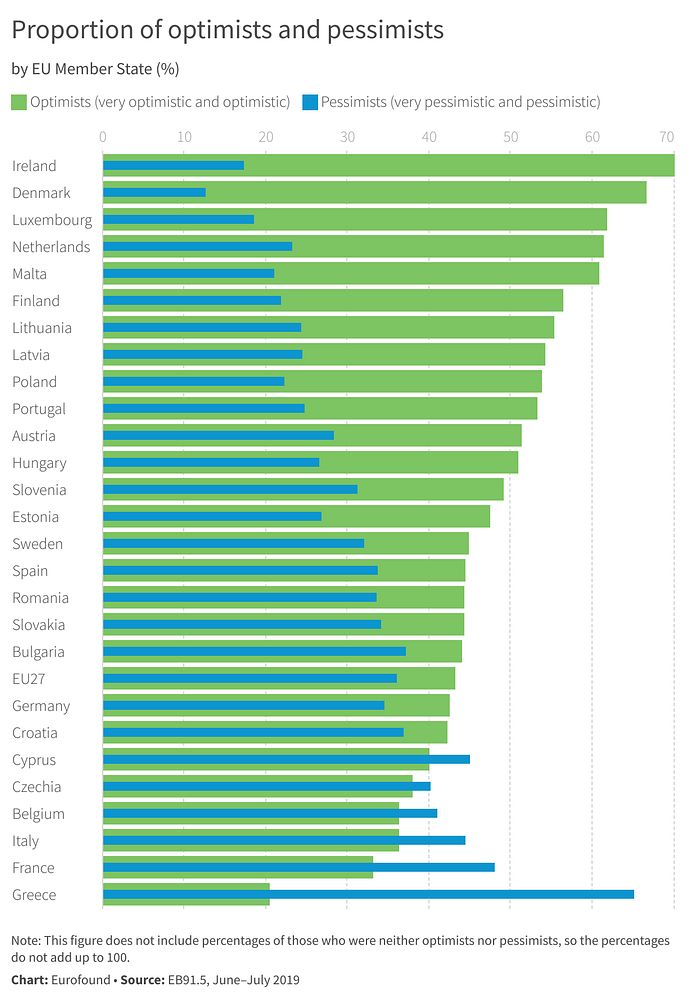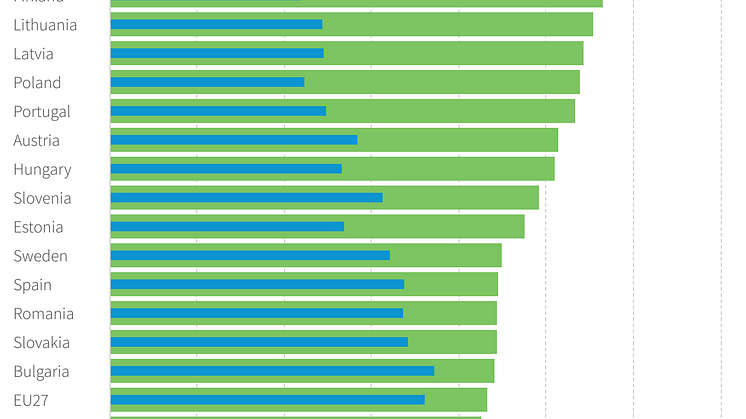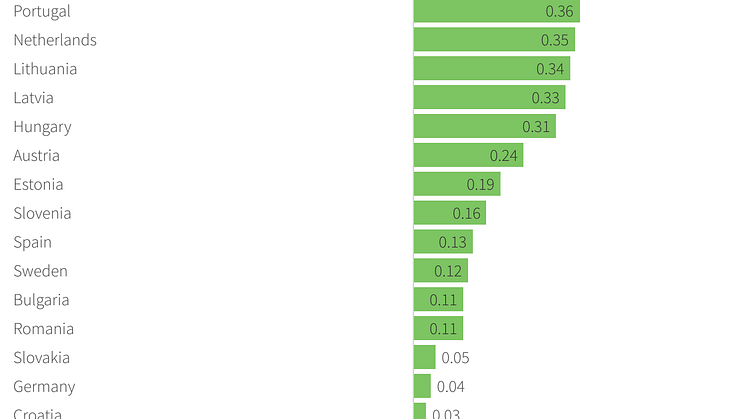
News -
Ireland and Denmark most optimistic countries in EU
Ireland and Denmark are the most socially optimistic countries in the EU, according to Eurofound's Social Optimism Index, a newly developed composite indicator which measures six variables of optimism among people in Europe. The index was applied to measure social optimism of citizens in the EU prior to the outbreak of the COVID-19 pandemic. Additional research from Eurofound has confirmed that Ireland and Denmark remained the most optimistic countries even after the coronavirus pandemic took hold in Europe.
The results of the application of Eurofound's Social Optimism Index to EU countries is detailed in the new report Towards the future of Europe: Social factors shaping optimism and pessimism among citizens. The Index measures personal and national expectations, perceptions of whether the respondent’s country is going in the 'right or wrong' direction, perceptions of the EU, and confidence about the future. According to the Index, Ireland rates highest (0.69), followed by Denmark (0.58), both notably ahead of the third placed country, Malta (0.42). Greece is shown to be the most pessimistic country in the EU (-0.65), again by a notable margin.

Click here to get the background data
When respondents are categorised as optimists and pessimists, 7 in 10 Irish people are social optimists, as are close to 7 in 10 Danes. In both countries fewer than 2 in 10 can be defined as social pessimists. This shows that in both countries optimism is a collective mood, shared by practically the whole population. By contrast, 65% of Greeks are socially pessimistic, while only 2 in 10 (21%) are optimistic.

Click here to get the background data
The index offers a robust, reliable and precise measure of EU countries’ social optimism levels. Although the contrasting positions of countries such as Ireland and Greece perhaps indicate diverging experiences of economic growth, socio-economic and macro-economic influences on social optimism also have their limits. For example, highly developed countries, such as Denmark and France, and less affluent countries, such as Portugal and Czechia, occupy very distant positions in the ranking. This may indicate the importance of individual factors that drive social optimism levels, such as community involvement, labour market position, financial situation of household, and people’s perception of whether their voice counts in their country.
Separate research from Eurofound based on the Living, working and COVID-19 e-survey have further substantiated the position of Ireland and Denmark as the EU's most optimistic countries, and the resilience of this optimism to the COVID-19 pandemic. The pan-European e-survey showed that in July 2020 Denmark had the highest proportion of people expressing optimism about the future (71%), followed by Ireland (63%). Denmark also had the highest level of life satisfaction. Greece recorded the lowest level of optimism (34%), and the second-lowest level of life satisfaction.
Speaking about the research, Klára Fóti, Eurofound Research Manager, emphasised that in relation to perception of the future, the European Union is a very divergent place, depending partly on the Member State citizens live in: 'All these data show that, unfortunately, social pessimism is quite widespread in parts of Europe and that citizens in the EU are living very diverse experiences which dramatically impact their aspirations for the future. This is a key issue in the debate around the Future of Europe, and where we want to go as a collective society.'
Download the report:
Further information:





